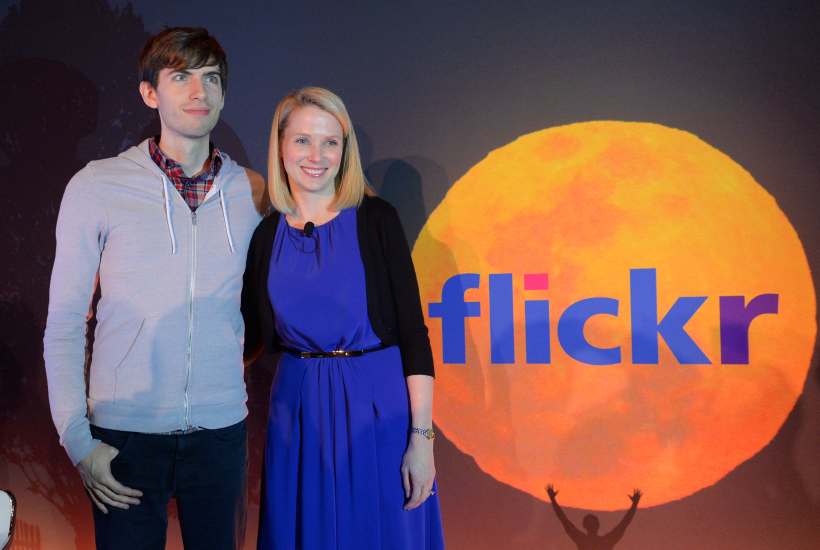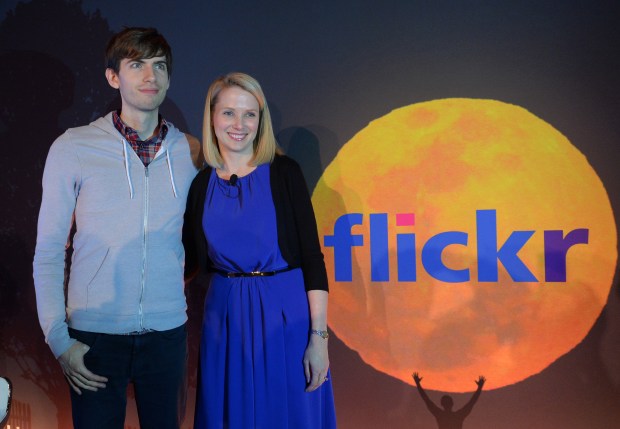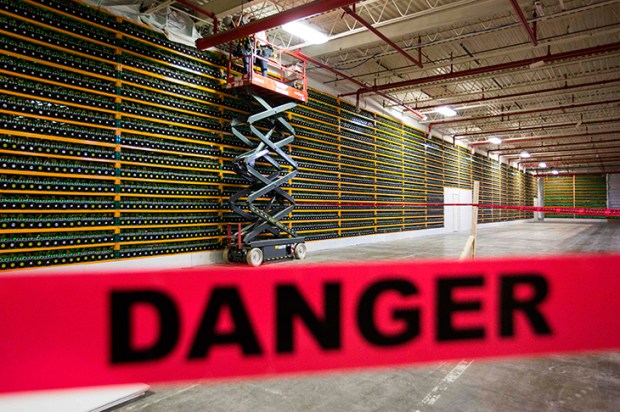I haven’t used Yahoo as a general search engine since an American friend introduced me to the miracle that was Google in November 2000, but I do use Yahoo Finance for share price data, and the clunky BT Yahoo email service. All this points me to one conclusion: Yahoo is as middle-aged as I am, and the decision by hot new ex-Google chief executive Marissa Mayer to seek brand rejuvenation by buying the unprofitable blogging site Tumblr for $1.1 billion may not end well. It’s like me deciding to get one of those big, wavy ‘tribal’ tattoos on my neck: it might get me laid, but more likely it will make me look even more out of touch with the young.
Comparisons have been made with AOL’s purchase of the Bebo social networking site for $850 million, of which the founding couple Michael and Xochi Birch received $600 million; their all-but-forgotten invention was eventually sold off for $10 million. And with the $580 million Rupert Murdoch spent on MySpace — which was briefly more visited than Google — only to sell it in decline for $35 million. Murdoch himself weighed in last week to tweet a warning that Facebook may be going the same way, based on ‘hours spent participating per member dropping seriously’ — a fact that accords with all those Great Bore of Today monologues that begin ‘I’ve taken myself off Facebook, I couldn’t see the point of it’, and the feeble performance of Facebook’s shares since its flotation a year ago.
The counter-example cited by Yahoo is the invincible Google’s $1.6 billion acquisition of YouTube in 2006, of which it’s possible to say ‘so far, so good’. But what’s really interesting about the Tumblr deal is that it will net at least $200 million for 26-year-old founder David Karp and give his early-stage investors a 100-times return on their money — while Yahoo’s plan to put adverts on Tumblr blogs will change the feel of the site and drive many of its users towards the next cool new thing. There may be thousands of Karps and Birches out there trying to perfect it, whatever it may be, but they’re still on the winning side on this market. I don’t see Warren Buffett buying up social networks with five-to-seven-year lifespans.
Slightly repulsive
I said last year there was ‘something slightly repulsive’ about the commodity and mining combine Glencore Xstrata, and the rapacious brand of capitalism it symbolises. But that doesn’t make it less fascinating as a soap opera; and as I also observed, we’d better take an interest anyway because, through pensions and fund products, we’re all likely to find ourselves investors in it. This merger of two secretive Swiss-based companies has finally been completed with a market capitalisation of £45 billion that places it high in the FTSE 100 — and imposes presentational demands that its board don’t quite seem to have mastered.
You might think group hugs for the cameras would be the order of the day. But not for this ugly crew, who launched into a final flurry of fisticuffs that left the Glencore side led by billionaire Ivan Glasenberg firmly in control — their strategy all along, according to sceptics who saw Glencore’s 2011 flotation as a device to make it easier to subsume Xstrata’s mining assets. The divisive issue, naturally, was executive pay rather than business strategy. At last week’s annual meeting, chairman Sir John Bond found himself making an early exit while three former Xstrata directors were also voted off by shareholders objecting to a £140 million package intended to hold senior Xstrata managers in post. Another non-exec, the accident-prone former Treasury official Sir Steve Robson, walked the plank before the meeting.
That left as chairman, at least for now, none other than Tony Hayward, the former BP chief whose hapless performance over the Gulf of Mexico oil spill in 2010 seemed to have ended his boardroom career. I felt sorry for Hayward at the time, but it’s hard to think of anyone less suitable to be the public face of a company whose private affairs are evidently going to be conducted like Fight Club; equally hard to think of anyone else who might want the job.
Over the border
To Deeside in North Wales, to address a CBI dinner. When I lived just over the border in Cheshire as a child, the industrial base here consisted of a steelworks at Shotton and the Hawker-Siddeley (formerly de Havilland) aircraft factory at Broughton. Both have modern descendants: a small Tata (formerly Corus, formerly British Steel) speciality steels unit, and a very large Airbus UK (formerly BAE Systems) wing-making plant which, despite the complex machinations of the Airbus consortium, remains a shining beacon of British skills in aerospace design and manufacturing.
Compressed into that little catalogue is a whole volume of economic history. And I was pleased to discover other thriving firms in the area offering a panorama of what we do well today. Here are the Toyota engine plant and the headquarters of the Iceland supermarket group; alongside the dinner venue are the offices of the price-comparison website Moneysupermarket.com, worth £1 billion, and the house-builder Redrow, whose share price has doubled in the past year. As I said in my speech, the UK has skills and prospects in many business areas in which we tend to talk ourselves down; it’s only in the area in which we talked ourselves up to the point of delusion — finance — that we really turned out to be bad.
Deeside even offers a parable of the negative impact of red tape — or if you prefer, the positive impact of regulatory competition. The Welsh Labour government acquired powers last year over building regulations and promptly set higher standards than England, including super-insulation and fire sprinklers in every new home. The result, as Conservative Secretary of State for Wales David Jones told me after dinner, is that ‘no one wants to build houses this side of the border, our builders just get up earlier and drive over to Cheshire’.
Got something to add? Join the discussion and comment below.
Get 10 issues for just $10
Subscribe to The Spectator Australia today for the next 10 magazine issues, plus full online access, for just $10.














Comments
Don't miss out
Join the conversation with other Spectator Australia readers. Subscribe to leave a comment.
SUBSCRIBEAlready a subscriber? Log in